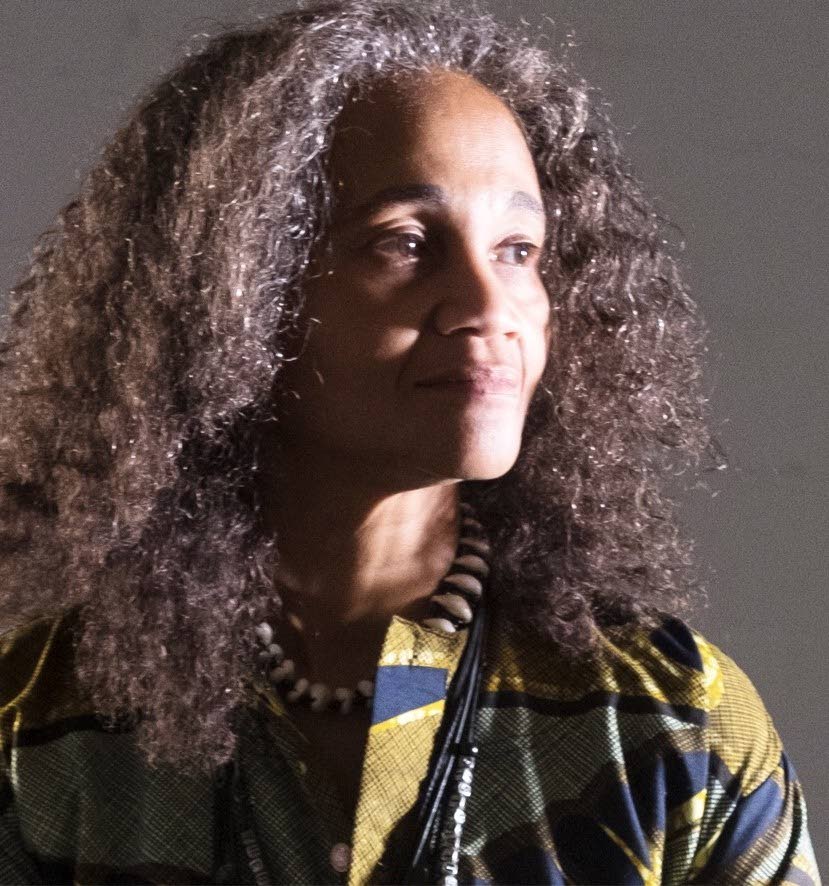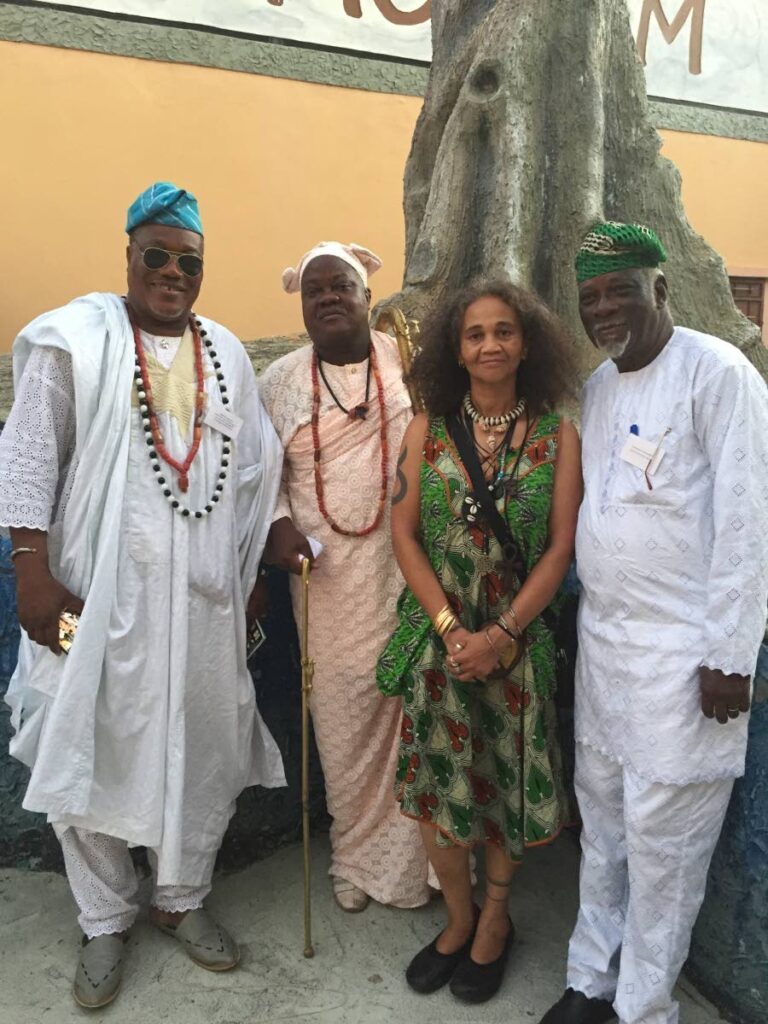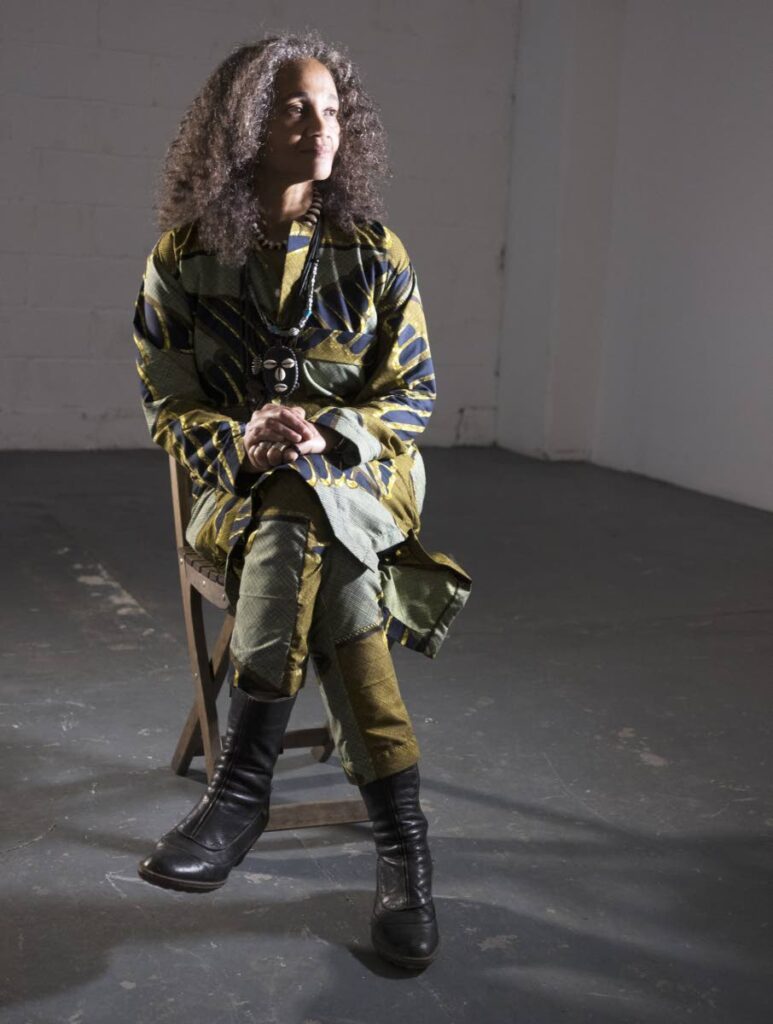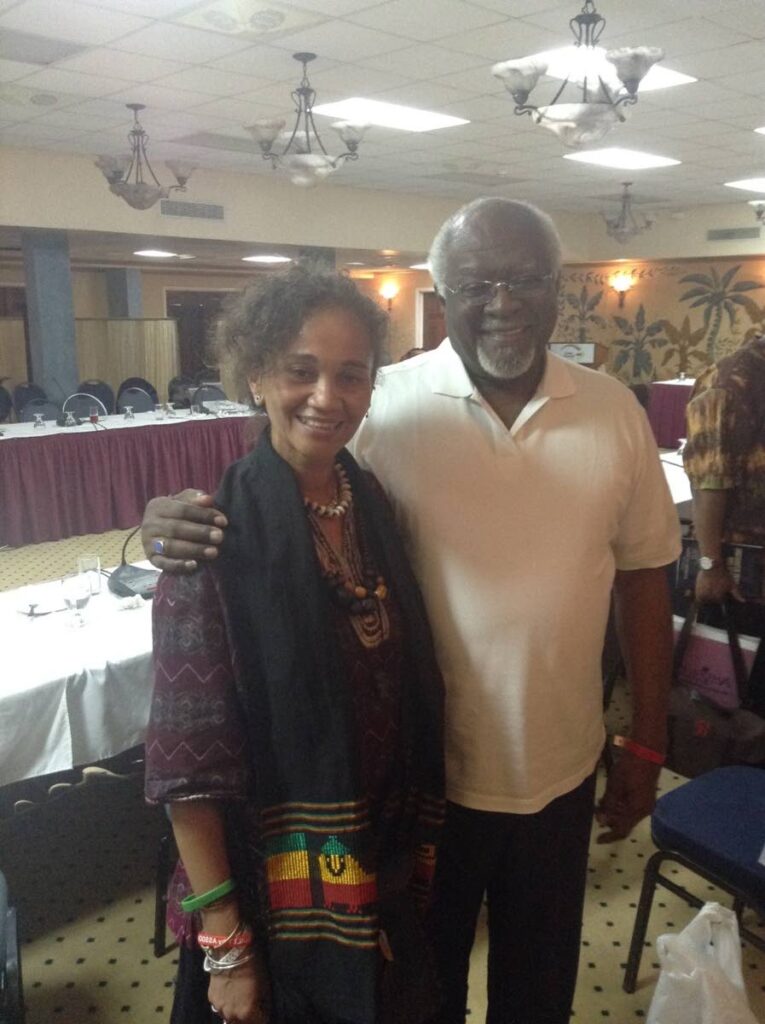Activist: Use reparations to rebuild Caribbean societies

It was no surprise to reparations activist, community organiser and Pan Africanist Isis Amlak that the UK government refused to discuss reparations at the recently concluded 2024 Commonwealth Heads of Government Meeting (CHOGM) held in Apia, Samoa from October 21-26.
Amlak – born in TT but living in the UK – has been one of the diasporic voices speaking strongly on the matter. In August, she addressed the Philosophical Society of Trinidad and Tobago on the Road Map to Reparation for TT.
Ahead of the summit, UK leaders said the matter would not be on the two-day agenda. However, there were strong calls for it to be discussed including from TT’s own prime minister. Dr Rowley and other Caribbean leaders defied a call not to discuss reparations at the summit.
Amlak’s reparations work includes being the Global African Congress’s UK Information Officer for approximately six years and in 2014 she was a delegate at the 2014 Antigua Reparations Conference.
The Caricom ten-point plan for reparatory justice was devised at this conference.
In 2015, she attended the launch of the US’s National African American Reparations Commission in New York.
“I have been around the reparations arena for a number of years,” she said.
It was against this backdrop Amlak said she was unsurprised by the UK Government’s response.
“What they have done, consistently, is try every method to avoid issuing a full apology because, as you know, in terms of a legal position on reparations, there are five points and the first thing is an apology.
“An apology is the starting point to a legal case.”

She added that the UK Government believes an apology had already been given – by Queen Victoria’s husband, Prince Albert, in 1840.
Historyreclaimed.co.uk quotes Albert as having said, “I deeply regret that the benevolent and persevering exertions of England to abolish that atrocious traffic in human beings (at once the desolation of Africa and the blackest stain upon civilised Europe) have not as yet led to any satisfactory conclusion. But I sincerely trust that this great country will not relax in its efforts until it has finally, and for ever, put an end to a state of things so repugnant.”
Former UK prime minister Tony Blair also made a “weak apology” in 2008, but there has been no official apology from the UK Government, she said.
Amlak said another argument by the UK government for its lack of urgency on reparations was that there was no direct correlation because of the length of time that has passed.
“They kept trying to say there is no one alive (who was personally involved) and it was so long ago that people were enslaved, etc,” she said.
But the reparations movement was not about money but rather the harm systemic, racialised violence had done to African and Indigenous peoples across the world.
Other systems like American segregation and apartheid continued that system of violence.
For people of African heritage, reparations were about the subsequent harm, which began when Columbus happened upon the region, Amlak said.
She also believes the UK government has financial concerns about reparations, but said the Caricom plan was not about money.

“The Caricom reparations plan is not about debt cancellation and compensation, it is also about educational reparations, spiritual, health and wellbeing outcomes.
“It is looking at a whole plethora of society. The demographics of society – if you think about it, in every situation, everywhere we go, people of African heritage, even in African diasporic countries like TT and on the African continent, tend to have the worst health outcomes, education outcomes, housing situation.
“It is the whole package. But they are worried about the compensation.”
She said the maths had been done, especially in the US, and it was literally trillions that was owed.
“They say, ‘Well, we can’t give reparations. Why should we give? There is no precedent for this.’”
However, slave/plantation owners were given reparations for the enslaved and their freedom.
Amlak referred to a 2018 tweet by the UK Treasury which said compensation to plantation owners was paid off in 2015.
It said, “Here’s today’s surprising Friday Fact. Millions of you helped end the slave trade through your taxes.”
It further explained that in 1833 Britain used £20 million, or 40 per cent of its national budget, to buy freedom for all enslaved people in the empire. It said the amount of money borrowed for the Slavery Abolition Act was so large that it wasn’t paid off until 2015.
“So we all discovered, at that point, as African-heritage people who also have Caribbean ancestry, we were, in our taxes, repaying a debt to enslavers.”
She said reparations were also owed to people of African heritage, as that group would not be the first to receive reparations.
Millions and millions were paid in reparations to the Jewish people after the Holocaust , she said.
“Quite rightly, the Jewish people who suffered during the Jewish genocide should, of course, receive compensation. But they received millions upon millions, so much so they were given somebody else’s land.
“That is how much reparations was given to them.”

While this was the case, far more African people died during the slave trade than anyone else.
Even though some arguments say looking back is not necessary, Amlak said, looking back at historical developments was important to the reparations movement.
She said from a philosophical standpoint, unless people looked at the past and how people got to where they were, they would not be able to rectify the things that went wrong or reclaim the things that went right.
“Our history makes us who we are.”
History was always around, and the past, present and future were always intertwined.
“Because of their past, they have the present and the future that they have and because of the past we have been in, we now have to look at the present that we are in, and that goes for most of the Caribbean.”
It was a false narrative to say, "Don’t look back," Amlak said.
Amlak said if people were honest, TT was an island of Venezuela.
“Before our ancestors were taken to TT, the Taino people, they were the same people that lived in Venezuela. So it is only by a matter of history that we exist.
“So we can’t not look at history. It is just the most ridiculous argument they come up with. It shapes who we are and who we are going to be.”
For her, diversity and inclusion programmes are not part of the reparations answer. Those programmes were like the icing, not the cake, she said.
“The problem is that we should not need these things. It is because we live in a structurally, systemically racist society in Europe and America that we need these in the first place.”
Labels were often misapplied to black and African-heritage students, and barriers were created for them that should not exist, Amlak said.
“Conversely, white students are given privileges they should not have and advantages they should not have. They do not look at the integrity, intelligence and natural ability of the student. They look at the race…”
These were some of the reasons why reparations were needed, she said.
She felt the recent US election would have little effect on the reparations movement.
She said even if there is a special relationship between the UK and the US, and the UK tends to adopt the worst aspects of American culture, she does not think Donald Trump’s win is going to have a huge impact on the region or the UK.
“I think what will happen is a lot of people of Afro-Caribbean heritage who live in the US might want to get the hell out.”
At the time of the interview, Amlak said some of Trump’s policies did not foretell well for US immigrants.
She also does not think the outcome of the US election will affect reparation discussions. The US “sat on the fence” with respect to reparations.
A Trump win, however, might require more reparations.
She said more progressive countries might turn their backs on the US after a Trump win and it would then be up to the region and countries of the African continent to come together in a unified voice and advocate more for reparations.
“Caricom and the AU (African Union) need to be working together in synergy with bodies like the Permanent Forum on people of African Descent in Geneva at the UN. And we need to be bringing these bodies together that are led by African-heritage people."
The UK, America or France – just to name some – were not going to be shining lights for reparations, it had to be the region, she added.
Even as the reparations discussion advances, Amlak believes it is not as far along as it should be.
“We should not even be having this conversation in 2024, October.”
When Caribbean governments began the Independence fight, reparations should have been a part of those discussions, she said.
She praised the work of Barbados' Prime Minister Mia Mottley in the reparations fight and also praised Dr Rowley’s decision to remove Columbus’s ships from the coat of arms.
However, she also spoke of reparations being a part of the school curriculum.
“Yes, it is great if Rowley discusses these on an international forum. But we need this to be on the national level. In schools, we need decolonised education for children that looks at reparations.
“So every child in TT, every child in Barbados, Grenada, St Vincent, going all the way up to Jamaica, every child in Caribbean schools, understands it, comprehends it, is able to articulate it and is able to, as they become older, to hold their own and talk about it.”
Even as the movement develops, Amlak, asked how the systems could ensure that reparations trickled down to the people, said this was why reparations could not only be monetary.
“It has to be in the form of systems and processes.”
She said the last thing the region needed was trillion of dollars going to leaders who did not honour the trust of Caribbean citizens by their actions and things they failed to do. She said there was already a history of people being let down since independence and republican status.
“The money should not be controlled (by) and in the hands of governments alone. There has to be a space where the money is distributed to civil society, grassroots organisations and statutory bodies.”
Money should be allocated to healthcare, education, infrastructural development and housing, she said, and reparations should help to restructure Caribbean societies and aid in social reform.

Comments
"Activist: Use reparations to rebuild Caribbean societies"